Scenario 1
Choosing a new mobile network
There’s no shortage of comparison websites: finding a new mobile phone contract or broadband provider is easier than ever. But today’s comparison sites are typically geared towards price, helping people find the cheapest deal.
What if a comparison service had access to richer information about its users instead? What if it knew about the places where people struggle with signal strength, their preference for strong ethics, or their real data usage rather than a single monthly number?
Data like this could enable the creation of services for managing and switching between mobile network providers: ones that optimise based on privacy or signal strength.
Of course, given the sensitivity of this type of data, it’s also critical that services like this have clear and trusted mechanisms for people to control what data is used for what purpose.
To explore these ideas, we prototyped a service called AutoSwap.
Prototype
AutoSwap helps you choose the best provider for you
It’s not just about price. AutoSwap lets you prioritise what matters to you, taking that into account when searching for the provider that fits the way you use your phone.
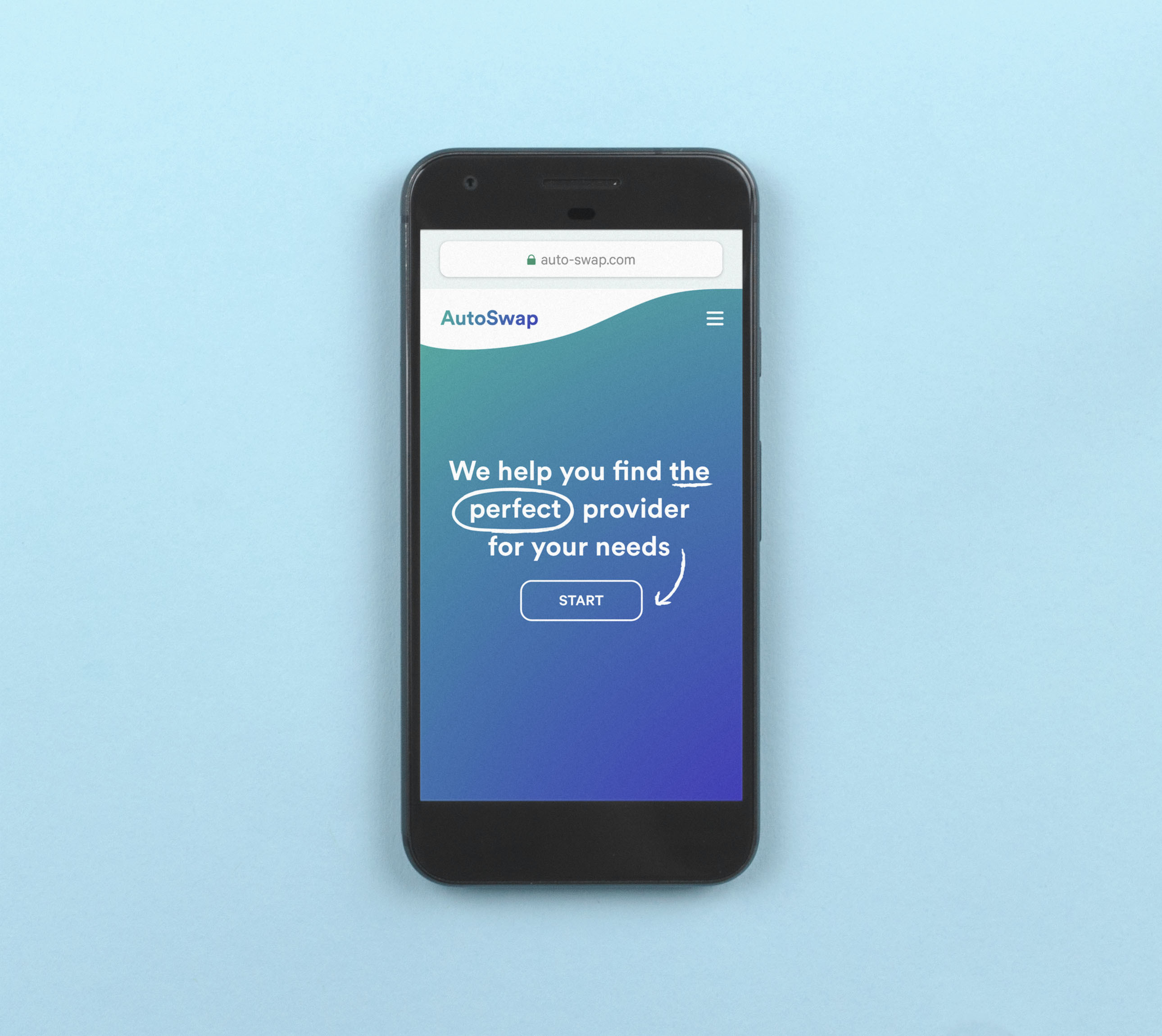
AutoSwap recommends the perfect phone contract by learning and understanding your behaviour.
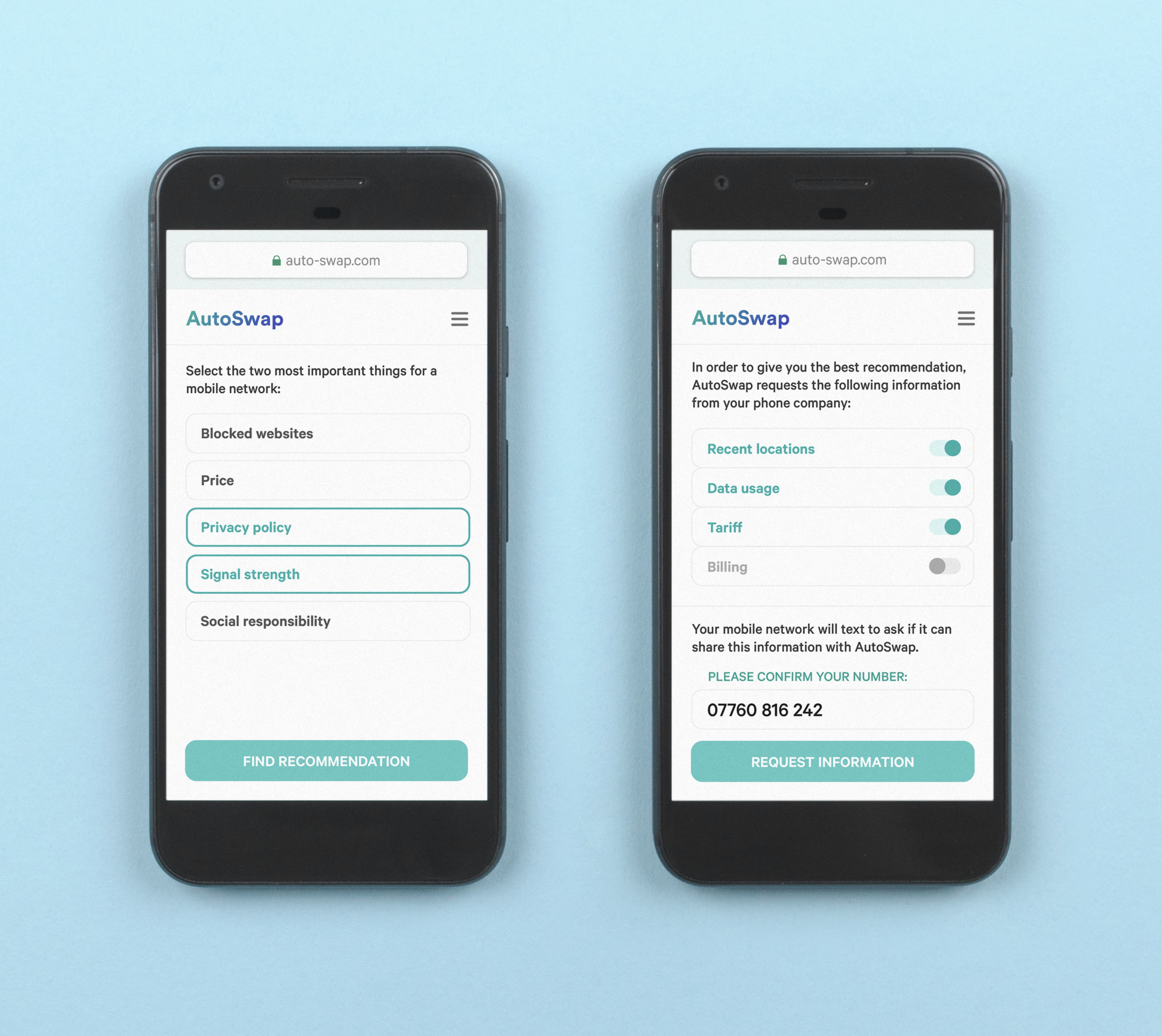
With your permission, it uses the new Open Utility APIs to understand the types of calls you make, your internet usage and the areas where you really need good signal.
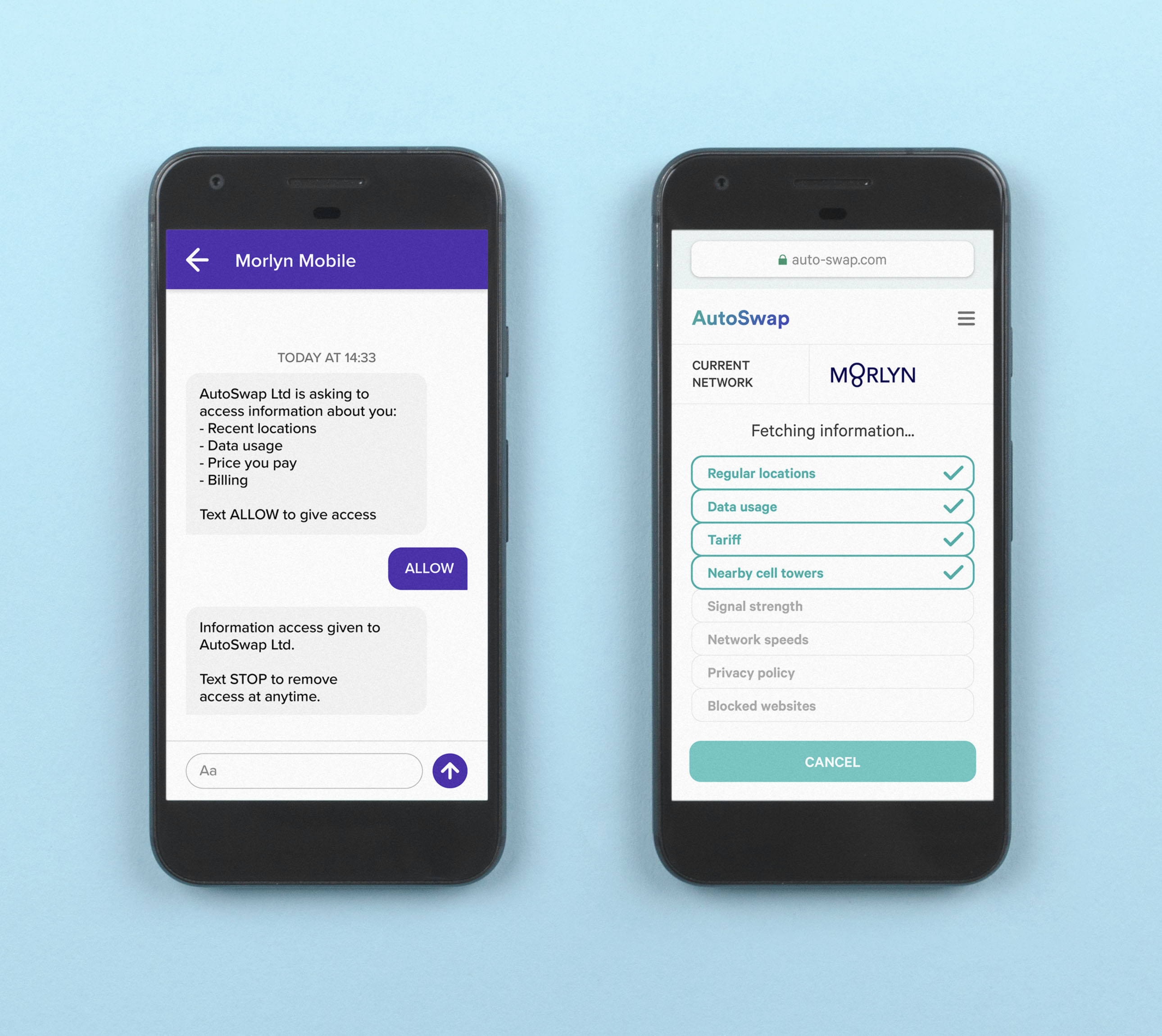
By using your location data, AutoSwap can even work out your commute and find the provider with the best signal strength for you.
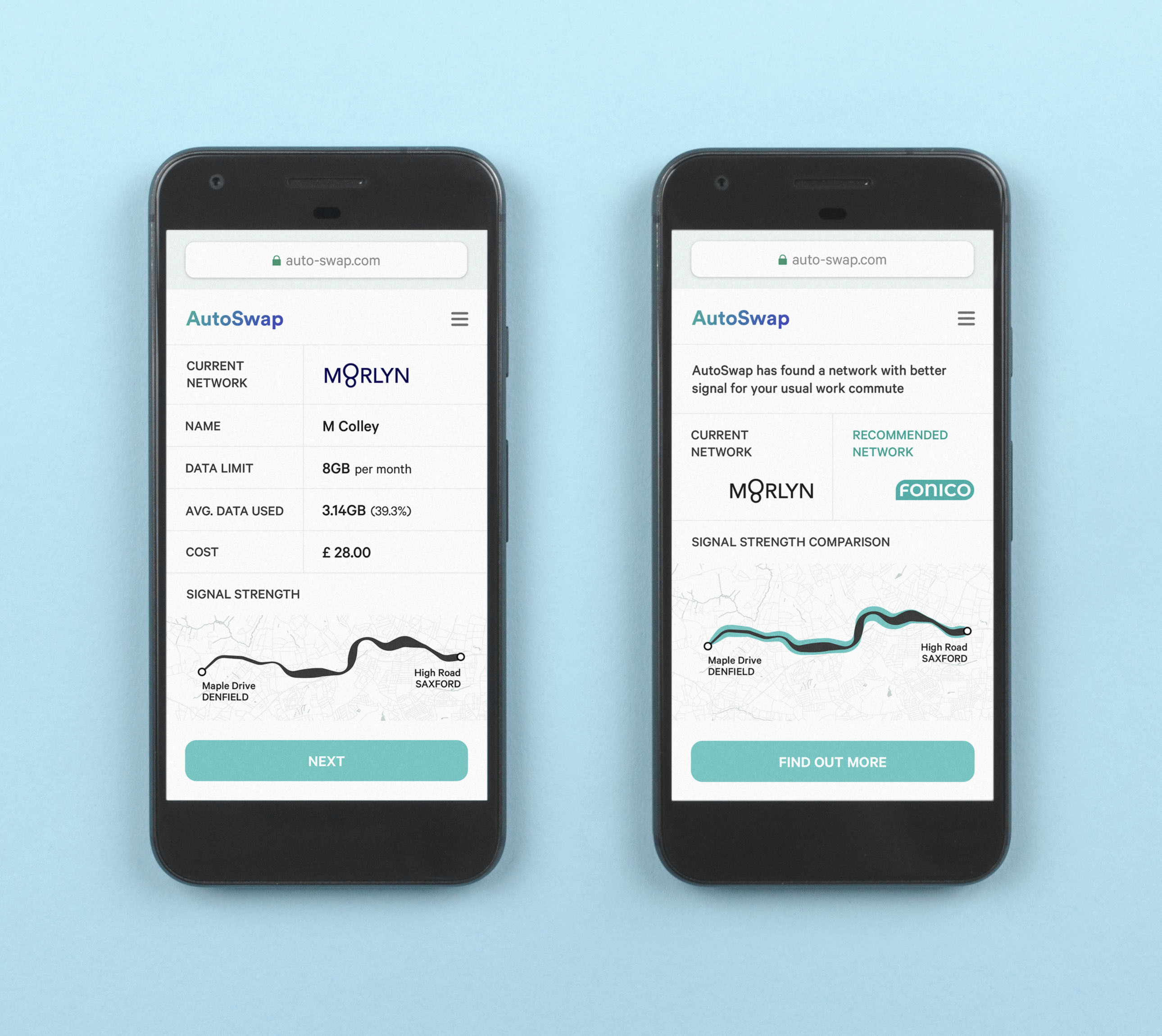
Once you’ve chosen a new provider, we’ll send you a flexible SIM card which supports all UK telecoms companies. So next time you want to switch, it’ll be even easier.
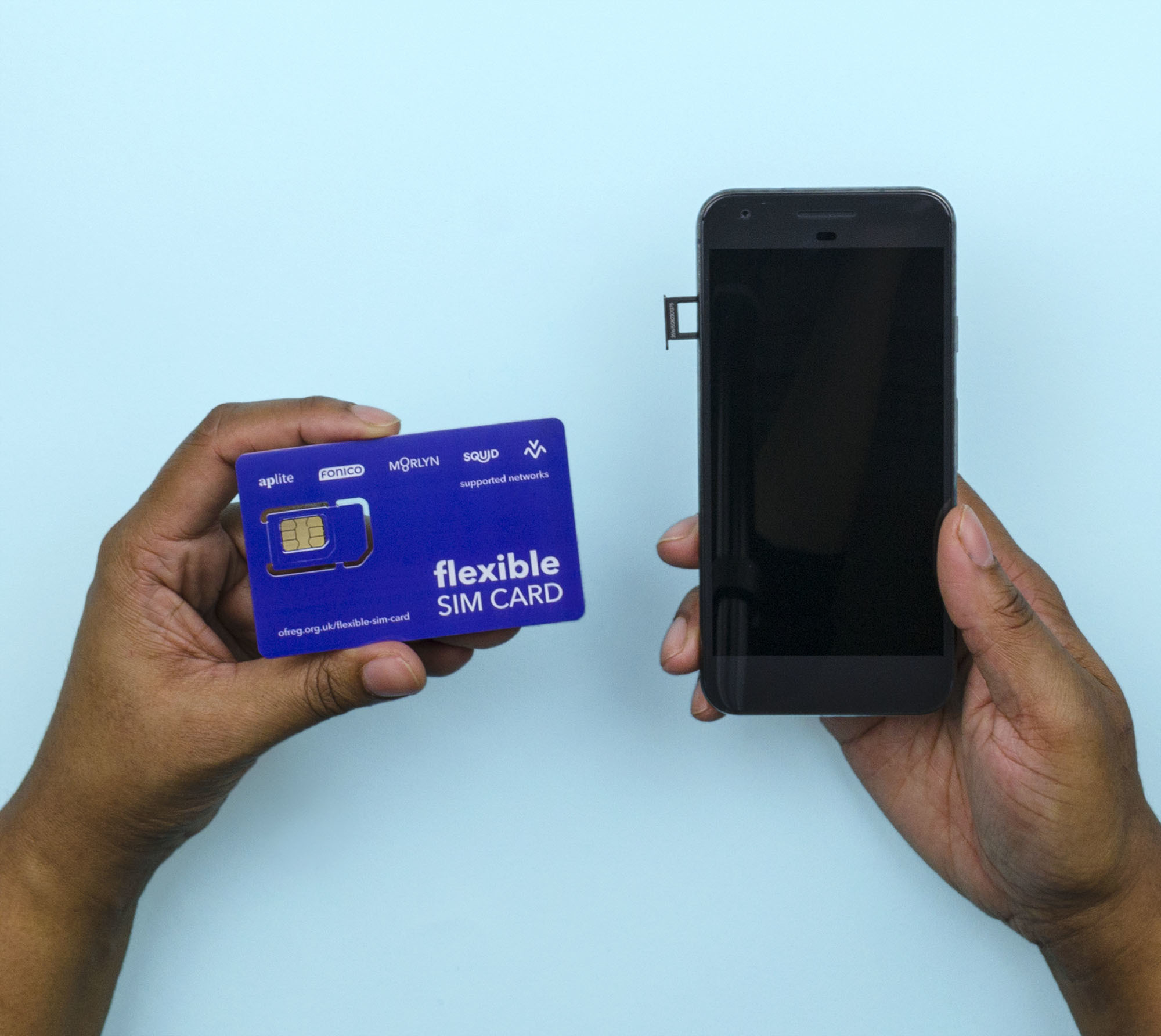
Plus, if your usage changes or a company launches a new deal, AutoSwap immediately recalculates its recommendation. It can even switch provider automatically for you, handling all the paperwork and payments.
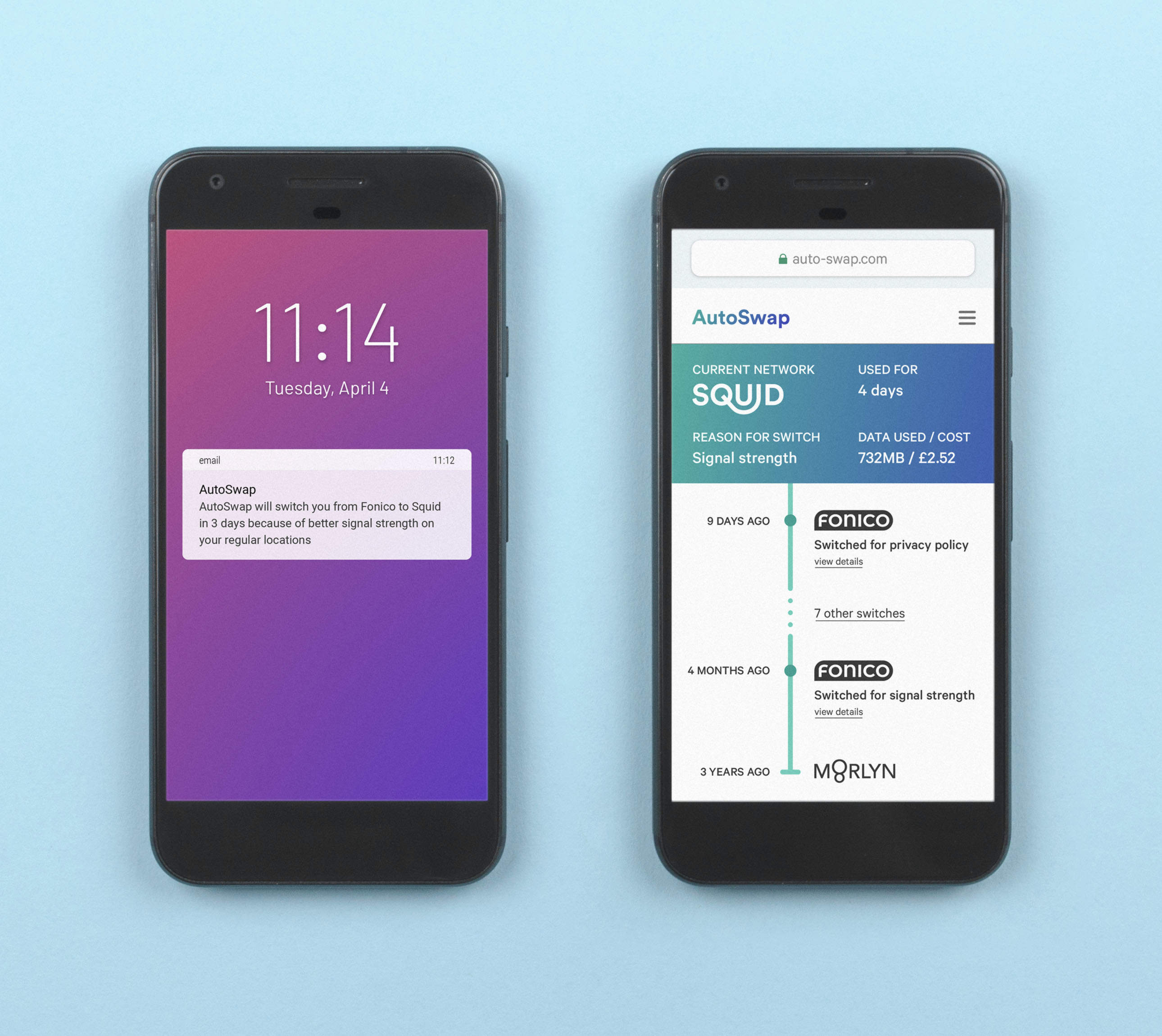
Summary of findings
Location history and signal strength
Some of the people we tested with welcomed the idea of using their location history to choose a phone company with better signal strength for them. The idea was more popular with people who commute and travel a lot.
Others, who travel less often, didn’t find this feature as useful and even had concerns regarding what it might mean for their privacy.
Automatic swapping
Automatically switching to a new phone company with a better deal is something that people could struggle to trust without good control over the decision to swap a contract.
People wanted more information about the reason a swap happened and what benefits came from it, for example savings they would make, or whether they would get better signal strength.
Many people we spoke with used words like ‘contracts’ and ‘signing’ when talking about moving networks. This suggests a current mental model that you stay with one phone company for months and years, rather than the weeks and days we hinted at in our prototype.
Potential design patterns from this prototype
- Select what data a service can share
- Authorise using another factor
- Combine open, shared and closed data
- Consent by SIM card
- Automated switching
- Future switch notice
- Account history across providers
 Open APIs in the Telecoms IndustryContents
Open APIs in the Telecoms IndustryContents